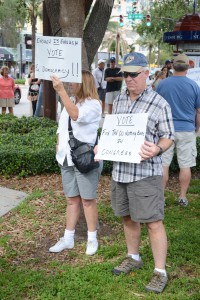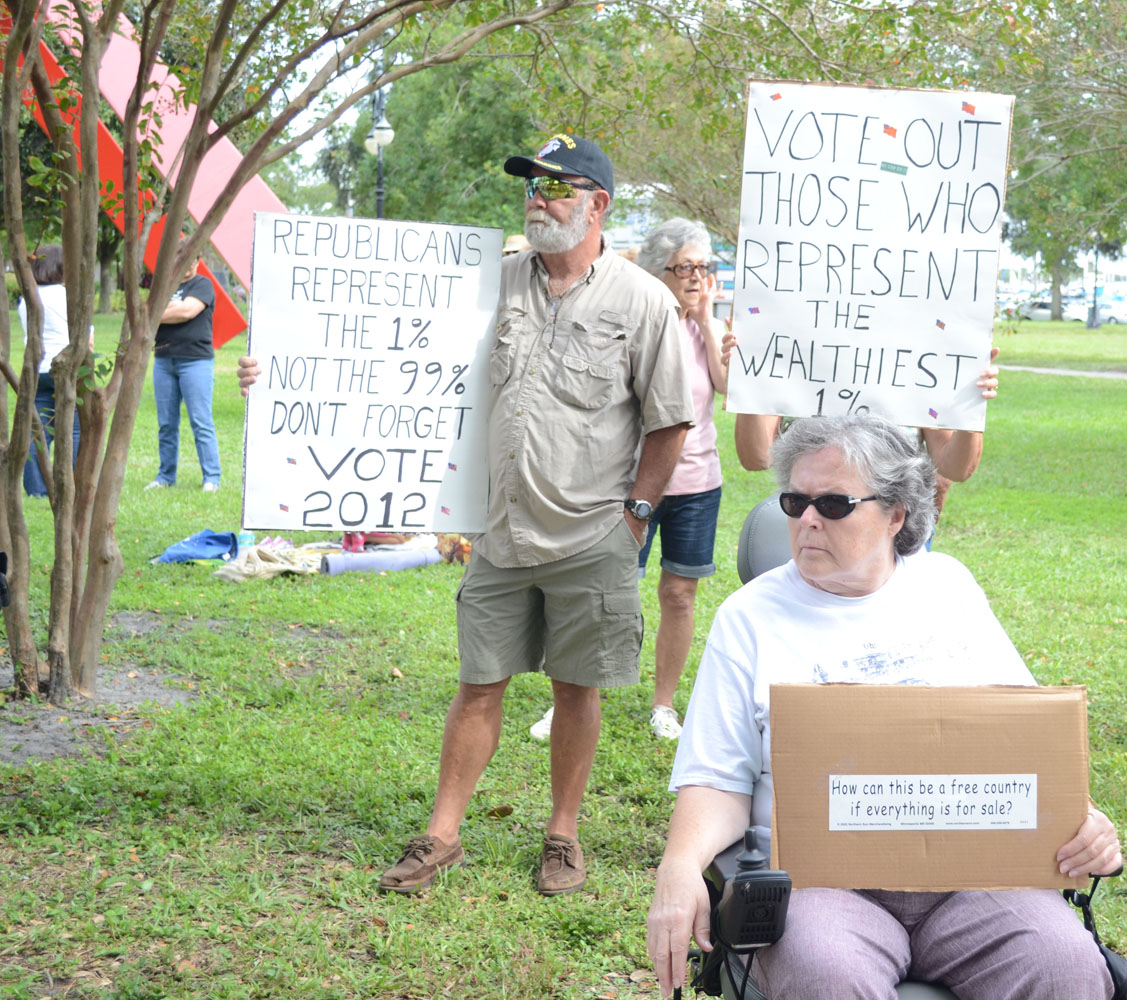The occupation of Wall Street continues for the fourth week, and protesters are building in numbers. Thousands hit the street in anger and frustration over a multitude of difficult issues the nation is facing. Most recently, protests have moved to the homes of some of New York’s wealthiest individuals.
But who are these protesters and what do they really want? Overwhelming amounts seem to be members of Generation Y that have a pessimistic outlook toward the future. Many call themselves the 99 percent—outraged by the top 1 percent who they believe are to blame for the current economic situation.
One common theme among the protesters is “blame the rich.” Rich executives, rich corporations, and rich individuals are facing the brunt of the storm. The protests seem to stem from frustrations over the anemic economic recovery the US is facing. If you take a peek at any of the various signage displayed you’ll find complaints ranging from bank bailouts, job cuts, high unemployment, depressed housing, the US tax structure, bonuses in executive pay, war and globalization.
The movement is gaining steam, and moving into cities like Chicago, Los Angeles, Atlanta, D.C. and even here in St. Petersburg. On Central Avenue in downtown St. Petersburg, a handful of protesters shared their frustrations. The protesters displayed similar signage to those on Wall Street with anger over job cuts and corporate greed. A common mantra seen around the nation is “people over profits.”

While the nation faces an unemployment rate stuck at 9.1 percent, a slowing economic recovery and lack luster job growth, frustrations are growing. Opponents of the protests say many of the demands are misguided in that Wall Street or rich individuals are not to blame for the current economic situation, but Washington is.
“Don’t blame Wall Street, don’t blame the big banks. If you don’t have a job and you’re not rich, blame yourself,” said Herman Cain, a candidate for the Republican presidential nomination, in an interview with The Wall Street Journal. “It is not a person’s fault because they succeeded. It is a person’s fault if they failed. And so this is why I don’t understand these demonstrations and what is it that they’re looking for.”
Another complaint amongst opponents of the movement is the failed policies Washington has enacted to create a fertile environment for job growth to occur in a time of high unemployment. After all, capitalism is the job growth engine of this nation and nurturing it to ensure its health is a vital component for our economy to thrive.
One thing is certain, many people in the U.S. are facing difficulties they probably have yet to experience in their lifetimes, and therefore frustration is warranted. It remains to be seen how long the protests will last, but it sure has many people talking and that’s a great thing.
Photos by Daniel Mutter



